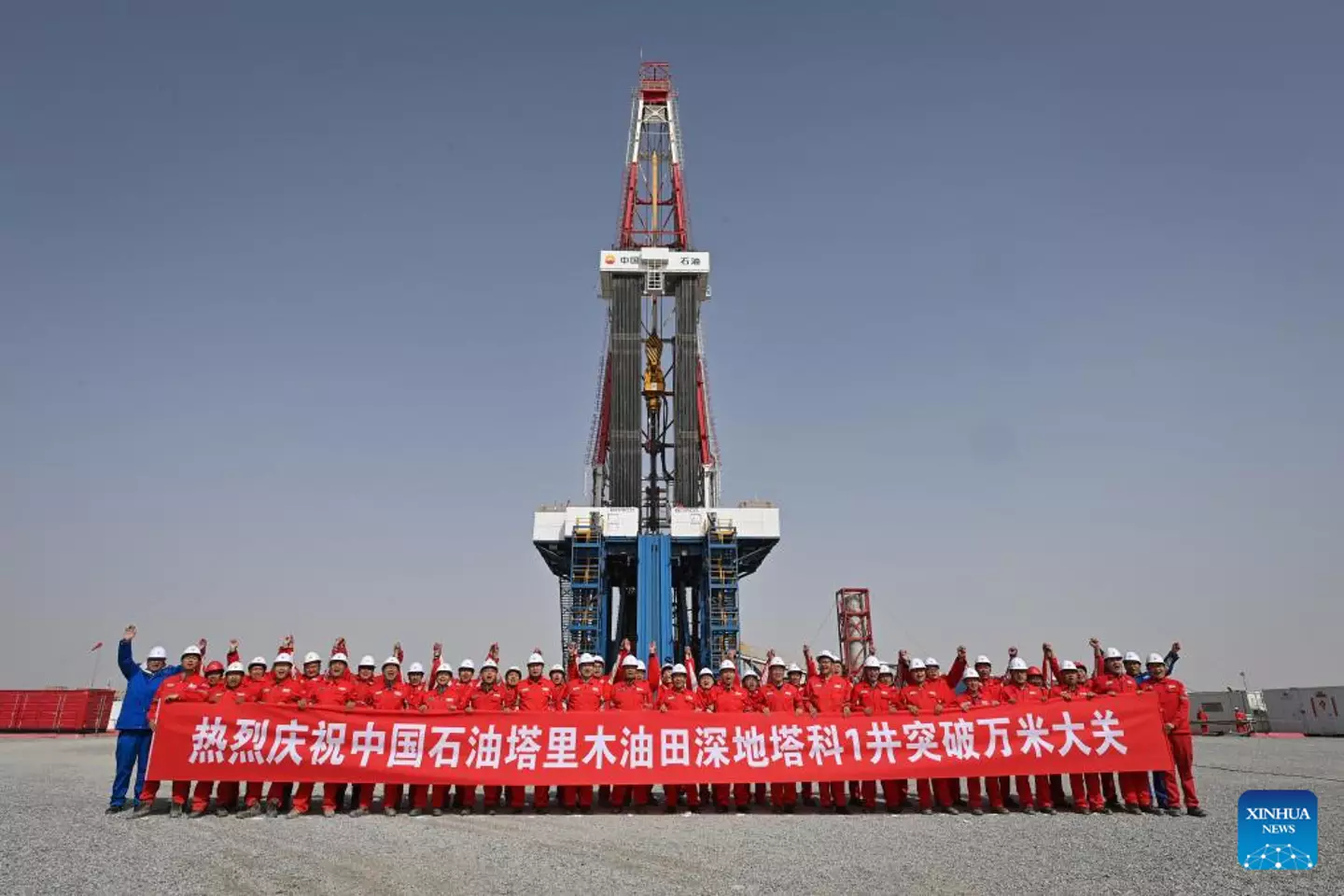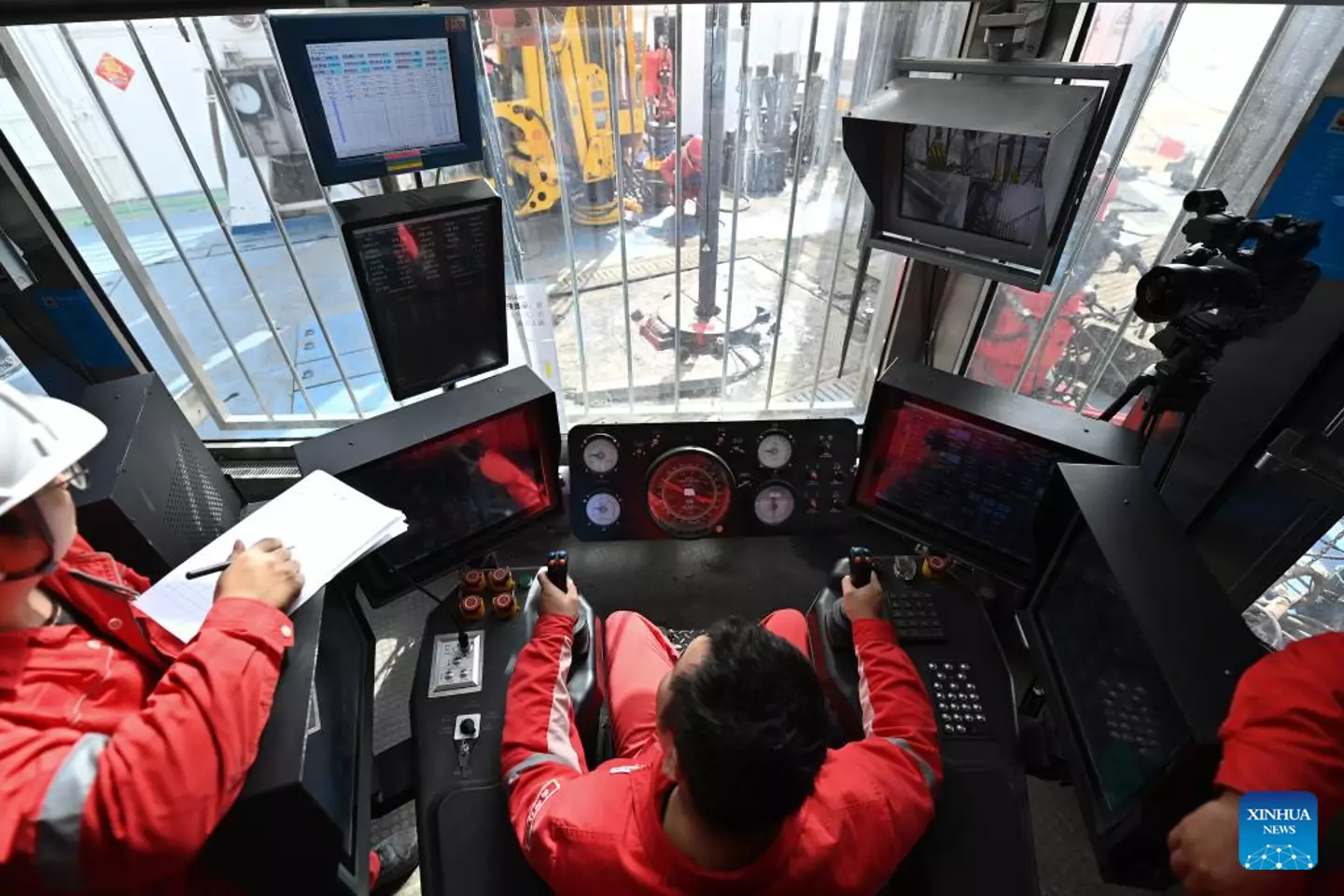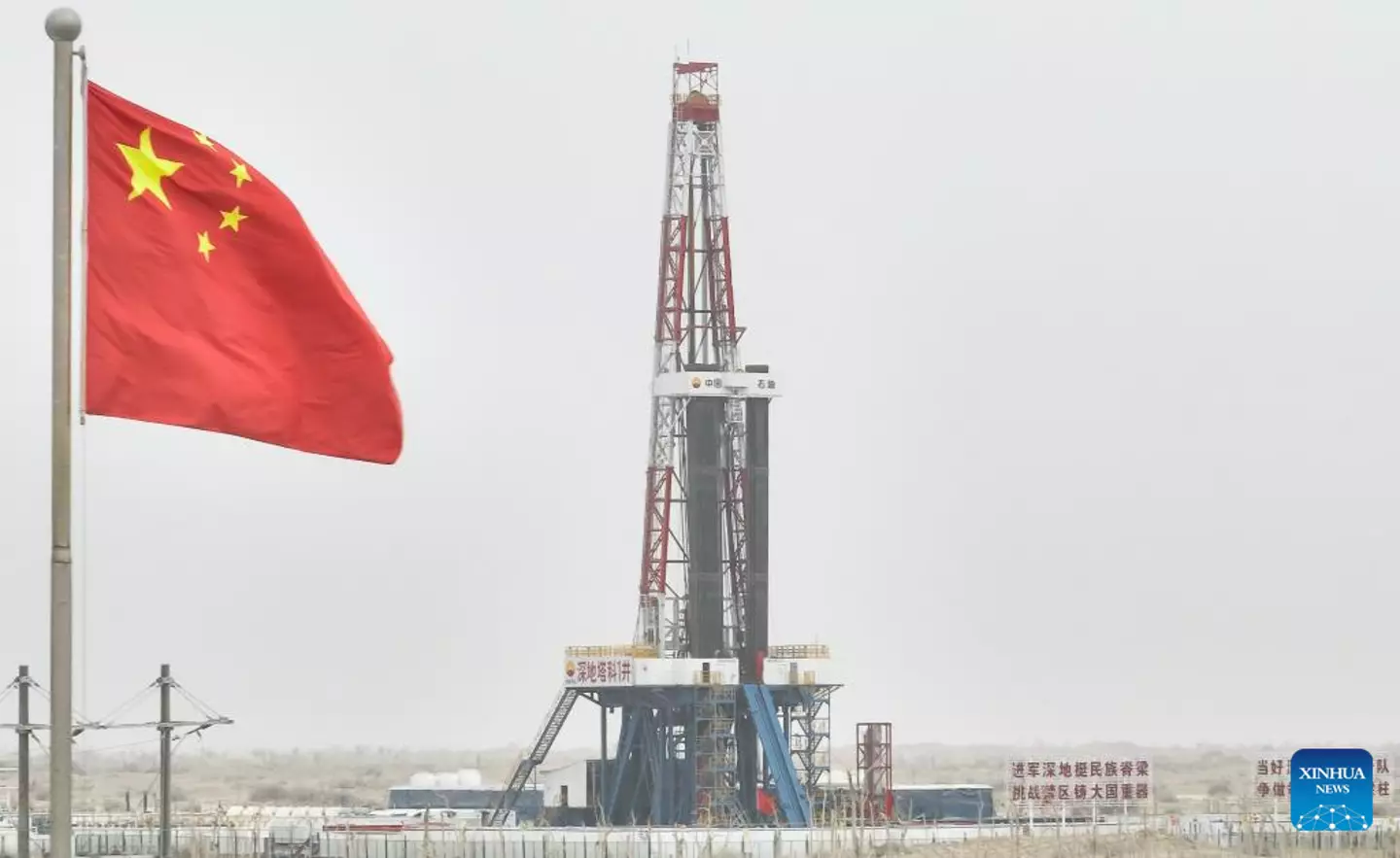China is drilling one of the deepest boreholes in existence, projected to dip 36,418 foot (11,100 meters) into the Earth's crust.
The project, named Shenditake 1, began last May in the Taklamakan Desert, located in the Tarim Basin, Xinjaiang.
It took scientists just 10 months - as well as 1,000 drill pipes and 20 drill bits - to penetrate depths of more than 32,808 foot (10,000 meters).
Workers celebrated reaching the milestone in March, but drilling further posed some pretty dangerous challenges.
Temperatures could reach more than 392 degrees Fahrenheit (200 degrees Celsius) and formation pressure could ramp up, exceeding 130 Megapascal (MPa).
For context, high-strength construction projects like bridges are usually made of concrete able to withstand 41 MPa.

Workers celebrating Shenditake 1's major milestone in May (Xinhua/Li Xiang)
Tarim Basin's 'harsh ground environment' and 'complicated underground conditions' make it a challenging area to explore, Chinese media claims.
But there's a very good reason scientists have set out on the feat.
The exploration means the internal structure and evolution of the Earth can be studied, providing crucial data for geoscience research, China National Petroleum Corporation, the country’s leading oil and gas producer, which is leading the project, said in a statement.
Shenditake 1 was projected to reach its maximum depth of 36,418 foot this July, although it's not been confirmed whether that target was met.

The project commenced last May (Xinhua/Li Xiang)
Still, it took scientists in Russia 19 years to dig the deepest manmade hole in existence - in comparison to China's 278-day dash to 32,808 foot.
The Kola Superdeep Borehole, in Murmansk Oblast - north of the Arctic Circle - holds the record for the world's deepest hole at more than 40,229 foot (12,262 meters).
For some insane context, that depth equates to the heights of Mount Everest and Mount Fuji combined.
The Superdeep project commenced in 1970, reaching its maximum depth in 1989. But the borehole was abandoned in 1995 for multiple reasons - namely a lack of funding and because it was no longer profitable.

It's not yet known if the borehole reached its 36,418 foot target (Xinhua/Li Xiang)
Shocked scientists also discovered the Earth was way hotter than expected at such depths.
As a kid, I was once determined to dig to the center of the planet from my backyard - an ambitious task considering the core is 21,120,000 feet below us.
Our planet's crust alone is an estimated 227,040 foot thick (69,201 meters), meaning Russia's borehole only penetrated 17 percent of the Earth's crust.
In comparison, China's borehole would reach 14 percent of our planet's crust at its maximum depth.















)



 English (US) ·
English (US) ·